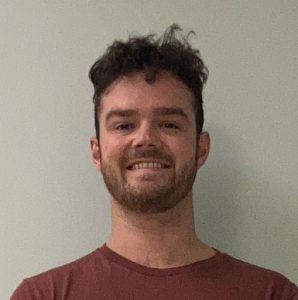Casey Schatzabel – Rapid, field deployable method for the detection of fecal contamination of water
 Casey is a Masters student in the Dept. of Civil & Environmental Engineering
Casey is a Masters student in the Dept. of Civil & Environmental Engineering
What problem/s are you working to solve?
While there are effective water testing methods for fecal-indicator bacteria, these standard methods can be costly, time-consuming, require specialized equipment, and highly trained personnel. These requirements can prevent effective monitoring and decision-making. My goal is to solve these problems through developing water testing protocols that deliver fast, reliable results that don’t require special equipment, training, and can be used in the field.
What progress are you making toward solutions?
I am researching and replicating novel concentration, extraction and detection methods that are used in fecal-indicator bacteria testing. The goal is to try out several of each of these methods and develop protocol workflows for different test users. I have replicated a few different assays designed to detect E. coli bacteria in water that have been researched in recent years. I have also replicated one extraction method and one concentration method that both have viability in the field. Working through these methods helps the understanding of what methods should be included in user-specific workflows.
How could your findings contribute to a sustainable future in Maine and beyond?
My opinion is that a sustainable future in Maine and beyond includes better management of water resources, and that includes ensuring the safety of drinking water, recreational water, and commercial harvesting water for aquatic species. The findings of this research project could inform better water quality reporting and decision making, which would be useful for test users in Maine and beyond.
Why did you get involved with this internship project?
I got involved with this pilot project through the Mitchell Center because my mentor Jean MacRae helped secure this position for me. I would say much of the research projects she is involved in now and in the past revolve around answering questions related to sustainability, and I am fortunate to have the opportunity to work with her and the Mitchell Center.
What do you find rewarding about collaborating with stakeholders? Most challenging?
What I find most rewarding about working with stakeholders is learning about what their specific needs are and directing my research towards addressing those needs. It can also be challenging at this stage in my research to remain engaged with stakeholders, however, as I still have plenty of work to do in developing a “product” that works as well as standard methods.
Where do you hope to be in five years?
My hope is to be working for an engineering consulting firm and saving capital. I hope to be planning bigger projects for myself at that time too – I want to build sustainable income streams generally through food production and/or recreation, that help improve environmental health, and physical and mental human health. I guess I want to grow food on land, in salt water, in a greenhouse, wherever – I also want to build a disc golf course or something similar – and I want to create/teach about music theory further on down the road.
What’s your ultimate Maine experience?
I guess my ultimate Maine experience is accomplishing my somewhat open-ended goals above! I want to live a balanced life, and never stop learning.
